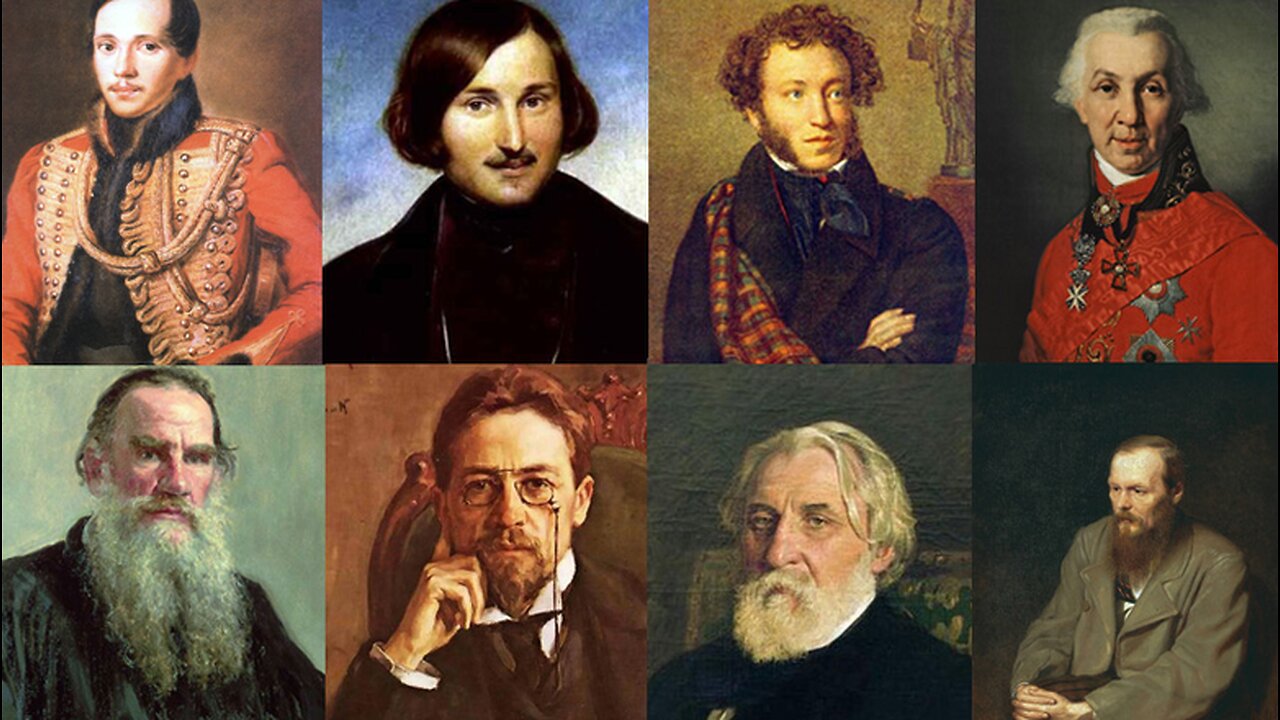Premium Only Content

Classics of Russian Literature | Aleksandr Isaevich Solzhenitsyn, Born 1918 (Lecture 35)
Lecture 35: Up to the 1960s, the Soviet Union officially claimed that there were no slave labor camps in the USSR. The air was struck by a kind of lightning when, in 1962, a new work by a previously unknown high school math teacher took the world by storm. It was Solzhenitsyn’s novella One Day in the Life of Ivan Denisovich. Through the soft voice of an uneducated man from a provincial collective farm, now a prisoner in the GULAG (an abbreviation for labor camps, soon to become world famous), the reader becomes aware of the horrendous reality of Stalin’s camps. Throughout its pages, the book reflects the mentality of a decent human being who deeply believes in producing good work no matter the circumstances. In many ways, the novel conforms to the shibboleths favored by the socialist regime. Yet its indictment of that same regime is crushing and, ultimately, lethal. Solzhenitsyn, subsequently in exile in New England, now back in a very different Russia, continues to write and speak in the voice of a prophet. Many in Russia look upon him today as the worn-out tribune of a long-gone time. I see him as the voice of Russian determination and strength.
Suggested Reading:
Michael Scammell, Solzhenitsyn: A Biography.
Aleksandr Solzhenitsyn, One Day in the Life of Ivan Denisovich, authorized translation by H. T. Willetts, with an introduction and commentary by Katherine Shonk.
D. M. Thomas, Alexander Solzhenitsyn. A Century in His Life.
-
 28:42
28:42
The Great Courses
7 hours agoThe Rise And Fall Of The Roman Republic | Cicero’s Defense of the Republic (Lecture 10)
34 -
 1:33:37
1:33:37
Russell Brand
3 hours agoBudget Cuts, Fires, and the Failures of Leadership – SF523
161K53 -
 1:57:42
1:57:42
The Charlie Kirk Show
2 hours agoAmerica's New Golden Age: Day 2 | Kelly, Kane | 1.21.2025
152K50 -
![[LIVE AT 3 ET] HE'S BACK! (Ep. 2405) - 01/21/2025](https://1a-1791.com/video/fwe1/ac/s8/1/z/4/v/Z/z4vZw.0kob-small-HES-BACK-Ep.-2405-01212025.jpg) UPCOMING
UPCOMING
The Dan Bongino Show
6 hours ago[LIVE AT 3 ET] HE'S BACK! (Ep. 2405) - 01/21/2025
493K386 -
 52:25
52:25
TheAlecLaceShow
2 hours agoDonald Trump Becomes President | Interviews & Reaction From Inauguration Day | The Alec Lace Show
13.4K3 -
 35:10
35:10
Grant Stinchfield
21 hours ago $6.29 earnedDr. Drew Reveals The Video YouTube Refuses to Let You See! We Un-Censor it!
37.1K12 -
 LIVE
LIVE
The Dana Show with Dana Loesch
2 hours agoTRUMP BEGINS SECOND TERM | The Dana Show LIVE On Rumble!
1,817 watching -
 50:06
50:06
The Rubin Report
4 hours agoThese Unexpected Executive Orders Signed by Trump Are Game-Changers with Co-Host Russell Brand
135K138 -
 1:59:33
1:59:33
Steven Crowder
6 hours agoEXPLAINED: Donald Trump’s Day One Orders & Elon’s Fake Nazi Hand Gesture
629K264 -
 3:48:59
3:48:59
Right Side Broadcasting Network
15 hours agoLIVE REPLAY: President Trump Attends National Prayer Service in Washington, D.C. - 1/21/25
209K115